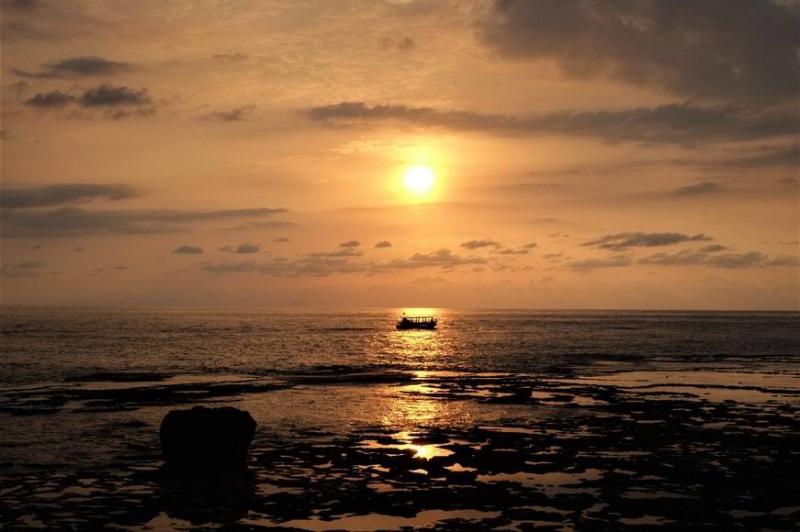The attempt by Lebanese Nazir Muhammad to flee from hunger and despair in his devastated country turned into a horrific journey that breaks hearts. Nazir and his wife Zainab sold everything they owned, even their last piece of furniture, to pay $2,500 to smugglers who promised to take the family to Cyprus, an EU member just 170 kilometers from Lebanon's northern shores. However, the couple's quest for a better future for their four children turned into a nightmare, ending with them being forced to return to Lebanon after losing their infant child, who died in their arms from dehydration while on the boat they boarded in September last year. Nazir recounts the tragedy, saying, "The boat left from here in Tripoli, and we were only allowed to carry one backpack. The boat was small, and there were 49 of us, including Syrians and people of other nationalities. Halfway, the boat ran out of fuel, and we were left stranded without water or food." Zainab recalls, with sorrow gripping her, how she filled her baby Mohammad's diapers with seawater and tried to filter the water to remove the salt so she could keep her baby's mouth moist. She continues, tears pouring down her face, saying, "I couldn't do anything; my child died." She adds that when the baby’s body started to swell, she and her husband had to make the decision to throw him into the sea.
She says, "We were stranded from the 7th to the 14th of September when a Turkish ship from the UN rescued us. I didn't want to get off when they took us back to the port of Beirut," adding that she pleaded with them to take her and the rest of her family to another country. Despite the tragedies, Zainab and Nazir do not see the smugglers as responsible for what happened to them. They are angry with the ruling elite and hold it responsible for the deteriorating conditions that led them to a state where they could no longer feed their children, thus risking this method to leave the country. Nazir states, "I will try again. I want to leave with my family to a country that respects its people."
Lebanon is experiencing its worst financial crisis in decades. The World Bank has described the crisis as one of the most severe globally since the mid-19th century. Many currently suffer from shortages of food, medicine, water, and fuel, and the country is witnessing widespread electricity outages. According to a report from the United Nations Economic and Social Commission for Western Asia (ESCWA), poverty rates in Lebanon have skyrocketed over the past year, currently affecting around 74% of the population. The Lebanese pound has lost 95% of its value, and the inflation rate for food prices is around 400%. Before the crisis, the minimum wage was equivalent to $450 a month, but it is now just $34.
According to data from the United Nations High Commissioner for Refugees (UNHCR), 1,570 people have attempted to cross the Mediterranean this year, mostly to Cyprus, which is double the number recorded last year. UNHCR spokesperson Lisa Abu Khaled in Beirut stated, "The commission has observed an increase in the number of boats departing from Lebanon starting in 2020 compared to previous years." She added, "Based on the available information, more than 1,570 people commenced or attempted to leave in this manner between January and November 2021, with the goal for 1,241 of them being to reach Cyprus." Abu Khaled clarified that the travelers included 1,138 Syrians and 186 Lebanese, along with people of other nationalities. The primary reasons for leaving are the inability to endure life in Lebanon due to the economic downturn, lack of access to basic services, and limited job opportunities.
Dr. Rami Fanj, a physician working with various humanitarian organizations to aid the people of Tripoli, confirms that "citizens are struggling to provide for their basic needs." Fanj, who helped find a new home and some furniture for Nazir and his family, noted that many Lebanese families are willing to risk their lives to leave the country. He added, "The problem is that when the civil war ended in 1990, warlords took control of the country, and therein lies the problem. The country is primarily ruled by militias lacking vision and relying solely on corruption." In the Mankoubin neighborhood, a poor area in Tripoli, Ali Tbaikh, unemployed and requiring dialysis, who had one of his legs amputated due to gangrene, relies on his wife to procure food from some social institutions in the city to feed her husband and their four children. Ali, sitting on the only bed in the room, said, "We live here, the six of us, as you see in this one room." Like many Lebanese, Ali hopes for a chance to leave his country, mainly to secure education and a better life for his children.




